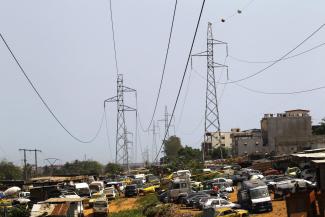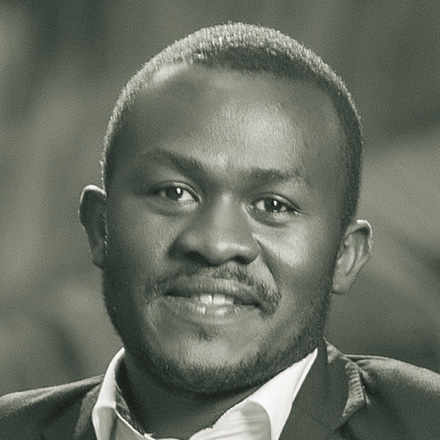WTO
No signs of sweeping reform
 Legnan Koula/picture-alliance/dpa
Legnan Koula/picture-alliance/dpa
Escalating trade conflicts, like the current fracas between China and the US, have reinvigorated calls for WTO reform. Tempers are running high: US President Donald Trump has threatened to leave the WTO. His administration is imposing tariffs on trade partners in defiance of the organisation’s principles that were designed to safeguard the multilateral trade system. Moreover, the US is blocking the nomination of new members to the WTO Dispute Settlement Body (DSB). The DSB may thus be largely dysfunctional by the end of 2019.
With traditional proponents and beneficiaries of the WTO system increasingly turning away and the US leading this trend, the reform debate has become much more urgent. The EU and Canada recently proposed reforms, but their initiatives mostly represent damage control that would reduce the negative impact of current trends on advanced economies. There are few reasons why developing countries should support their suggestions.
The proposals concerning dispute settlement include concessions to the US, but also go beyond Washington’s demands. The Trump administration blames the DSB for its judicial activism. This refers to a tendency of the DSB to overstep its mandate by defining rules and obligations that exceed the scope of specific cases. Accordingly, the EU proposes to restrict DSB jurisdiction. But the EU also advocates for more resources for dispute settlement and an increase in DSB staff, which runs counter to the US stance.
The most far-reaching EU proposals, however, concern changes to the special status that developing countries currently enjoy in the WTO, the creation of new WTO rules to guarantee a level playing field and the commitment to pursue plurilateral negotiations, which only involve a subset of WTO members.
The EU is calling for greater differentiation among developing countries and, in particular, wants dynamic economies like China to lose their flexibilities and exemptions. Two thirds of WTO members – including China – claim special treatment as developing countries. This exempts them from cutting some tariffs, permits longer transition periods and entitles them to some financial assistance. A more needs-driven approach with regular reassessments could benefit developing countries that face increasing competitive pressure from emerging economies like China. But the proposal is highly controversial because it would mean the end of member states’ right to self-declare their development status in the organisation.
Other EU proposals will face similar concerns. These address issues such as market-distorting subsidies, state-owned enterprises and forced technology transfers. The outdated WTO rules do not address these more recent concerns satisfyingly. Again, the proposed reforms primarily target China, which, according to the EU, USA and Japan, is deliberately distorting markets. The proposals mainly serve the interest of the established economic powers and would further restrict the policy space of developing countries. Moreover, many developing countries still refuse to discuss new issues because their priority remains to secure compensation for past concessions; they are thus hesitant to let go of the Doha Round negotiation agenda. China will pose another hurdle, as it is unlikely that the country will agree to further restrict its domestic industrial policies.
The changes proposed to date cannot fundamentally revamp the WTO. They represent damage control, slight tweaks that do little to address the underlying tensions in the system of global trade governance. Many WTO members have in recent years opted for bilateral and regional agreements to avoid complex and time-consuming multilateral diplomacy. The EU and the US have been driving forces of this trend, fully aware of its undermining effect on the WTO’s authority.
The current reform proposals hold little appeal for developing countries. While they emphasise that trade liberalisation agreed in subgroups – so-called plurilateral agreements – should be extended to all WTO members, developing countries are often not part of the negotiations. It is thus unlikely that their interests, like reducing rich nations’ agricultural subsidies, will be high on the agenda of these plurilateral negotiations or that developing countries will have much say in drafting new rules.
Unfortunately, the much-needed renewal process of the multilateral system is only just beginning. WTO members’ interests diverge fundamentally, and the current reform proposals are not far-reaching enough to bridge these differences. Limiting the damage will not suffice; neither will proposals that merely reflect the interests of a minority of the organisation’s members.
Developing countries need to highlight the current gap between damage control and modernisation and take advantage of the existing impasse to advance own reform proposals. The deficiencies of the trade system are well known, but mounting conflicts have left member states with a new sense of urgency and willingness to address some of the flaws in the system. A good start could be to assess how the dispute settlement system can be made more accessible for developing countries, which so far have not been using it much. More generally, developing countries need to insist on a significant role in future plurilateral talks. They must ensure that their interests are equally represented and the negotiations advance – rather than diminish – the integrity of the multilateral system.
Fabian Bohnenberger is a doctoral researcher at King’s College London focusing on multilateral trade governance.
fabian.bohnenberger@kcl.ac.uk
Twitter: @BohnenbergerF
Clara Weinhardt is a lecturer in International Relations at the Hertie School of Governance and a non-resident fellow at the Global Public Policy Institute (GPPi).
c.weinhardt@hertie-school.org
Twitter: @claraweinhardt


